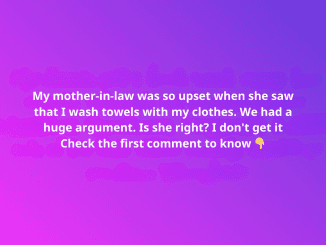Vitamin B12, also known as cobalamin, may not get the same hype as vitamin C or iron, but don’t underestimate its importance. This essential nutrient plays a powerful role in maintaining healthy nerves, producing red blood cells, and supporting DNA synthesis. Without enough B12, your body—and your brain—can start to feel the effects in ways you may not even realize at first.
A deficiency can creep in slowly, but its long-term impact can be serious. Let’s dive into the 9 most common effects of vitamin B12 deficiency and why it’s crucial to spot them early.
Fatigue and Constant Weakness

One of the earliest and most recognizable symptoms of B12 deficiency is constant fatigue. If you find yourself exhausted even after a full night’s sleep, your body could be struggling to produce enough healthy red blood cells due to low B12. These cells carry oxygen throughout your body, and without them, your muscles and organs don’t get the energy they need—leaving you feeling worn out and weak.
Pale or Yellow-Tinted Skin
Have you looked in the mirror and noticed that your skin looks a little off—either pale or slightly yellow? It’s not just your imagination. Low B12 can cause red blood cells to break apart more easily, releasing a pigment called bilirubin. When bilirubin builds up, it can cause a yellowish tone in your skin or eyes, mimicking mild jaundice.
Dizziness or Shortness of Breath
When your red blood cell count drops, your oxygen levels follow. That can leave you feeling short of breath during physical activity, or even dizzy and lightheaded when standing up too quickly. If you’ve been feeling winded more than usual, especially without any real exertion, your B12 levels could be dipping too low.
Video : ⚠️9 Vitamin B12 Deficiency WARNING Signs! [B12 Foods vs. B12 Shots?]
Tingling or Numbness in Hands and Feet
B12 doesn’t just keep your energy levels up—it also supports your nervous system. A deficiency can damage the myelin sheath that surrounds and protects your nerves. The result? Strange sensations like tingling, numbness, or that pins-and-needles feeling, often in your hands, legs, or feet. These signs shouldn’t be ignored—they point to nerve damage that could become permanent if untreated.
Poor Balance and Coordination
As nerve damage progresses, so do its effects on coordination and balance. You might notice you’re more clumsy than usual, unsteady while walking, or prone to tripping. This is especially dangerous for older adults, who face a greater risk of falls and fractures. If your balance feels off and there’s no clear reason, it’s time to consider a vitamin B12 check.
Memory Loss and Brain Fog
Vitamin B12 plays a critical role in cognitive health. Deficiency can lead to memory lapses, difficulty focusing, confusion, and what many describe as “brain fog.” In severe cases, low B12 levels have been linked to dementia-like symptoms. If you’re forgetting things more often or struggling to concentrate, don’t brush it off as just getting older—your brain may be lacking vital support.
Mood Swings, Depression, or Irritability

Your mental health is tied to your nutrient levels more than you might think. Vitamin B12 helps produce serotonin and dopamine—chemicals that regulate mood. A lack of B12 can trigger feelings of depression, anxiety, irritability, or mood instability. The good news? Studies suggest that for individuals with B12 deficiency, supplementation may significantly improve mood and emotional well-being.
Glossitis and Mouth Pain
If your tongue feels sore, swollen, or unusually red, you might be dealing with glossitis—another sign of B12 deficiency. This condition can cause discomfort, a smooth appearance to the tongue, and even difficulty speaking or eating. You might also experience painful mouth ulcers or cracks at the corners of your lips. These symptoms are often mistaken for minor mouth issues, but they could be your body signaling something bigger.
Blurred Vision or Visual Disturbances
In rare but serious cases, prolonged B12 deficiency can damage the optic nerve, leading to vision problems like blurriness, double vision, or increased sensitivity to light. Though uncommon, this is a red flag that should never be ignored. If your vision changes suddenly and there’s no clear explanation, B12 deficiency could be a hidden cause.

Who’s Most at Risk for Vitamin B12 Deficiency?
Some people are more vulnerable to B12 deficiency than others. You may be at higher risk if you fall into one of the following categories:
- Adults over 60, due to decreased stomach acid which is needed for B12 absorption
- Vegans and vegetarians, since B12 is mostly found in animal-based foods
- People with digestive disorders like Crohn’s disease or celiac disease
- Individuals taking long-term medications like metformin or antacids, which interfere with absorption
If any of these apply to you—and especially if you’re experiencing symptoms—it’s worth getting your B12 levels checked with a simple blood test.
How to Replenish Vitamin B12
Treating a deficiency is usually straightforward. Depending on the severity, your healthcare provider might recommend:
- Oral B12 supplements
- B12-rich foods such as meat, poultry, fish, eggs, and dairy
- B12 injections for those with severe deficiencies or absorption issues
- Fortified plant-based foods if you follow a vegan or vegetarian diet
The key is consistency and follow-up. Restoring your B12 levels can take time, but most people begin to feel better within a few weeks.
Video : Vitamin B12 Deficiency: Symptoms, Causes, and Solutions!
Final Thoughts
Vitamin B12 may fly under the radar, but its role in your health is anything but minor. From keeping your mind sharp to supporting your nervous system and energy levels, B12 fuels many vital processes in your body.
If you’re feeling “off” and can’t pinpoint why—whether it’s fatigue, brain fog, or mood swings—don’t ignore the signs. A simple test could lead to a life-changing solution. Take care of your body, and it will return the favor.


